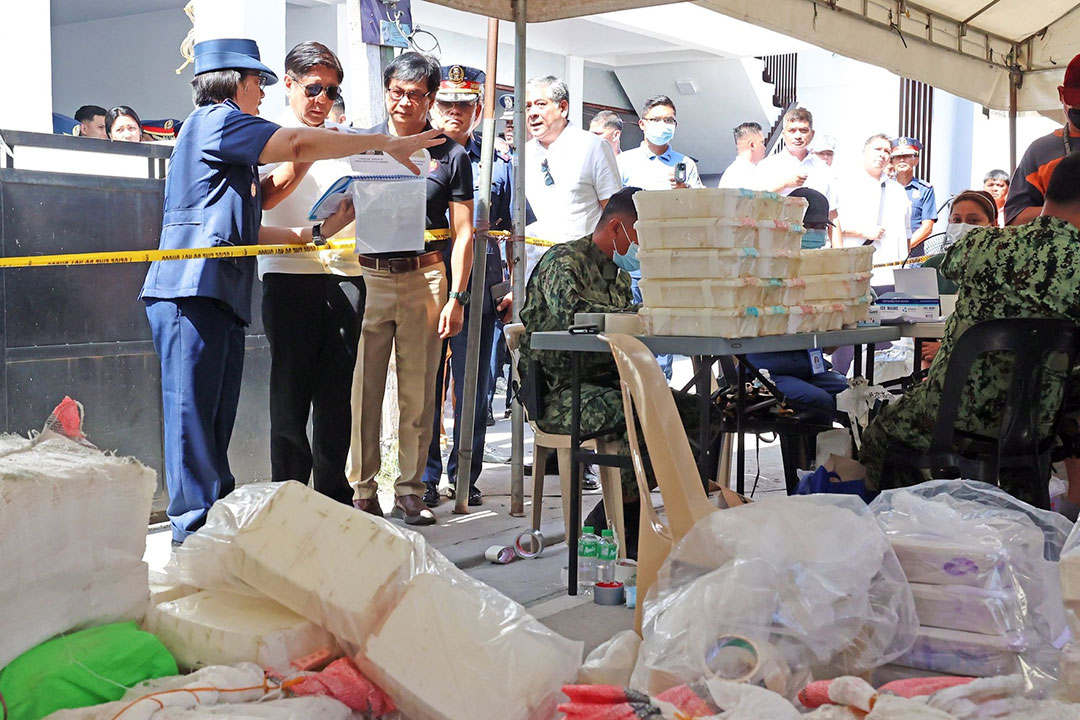Marcos: Not one person died in police drug bust

PHILIPPINE President Ferdinand R. Marcos, Jr. on Tuesday vowed to bring down drug syndicates and the illegal drug trade, while minimizing bloodshed in carrying out these operations.
This came after law enforcers on Monday seized a record P13.3-billion ($234 million) haul of crystal meth or shabu in Batangas province south of the capital.
“This is the biggest shipment of shabu that we caught, but not one person died,” Mr. Marcos told a news briefing in mixed English and Filipino streamed live on Facebook on the sidelines of his inspection of the seized drugs in Batangas, in a subtle criticism of his predecessor’s deadly drug war.
“No one died, there was no gunfire and no one was hurt,” he said. “That should be our approach in the drug war. The most important thing is to stop the drug shipments.”
Police on Monday arrested a drug suspect driving a van with about 1,600 kilos of crystal meth at a checkpoint in Alitagtag town, Batangas.
From the start of the President’s term in July 2022 to December last year, the government conducted 36,803 illegal drug operations that led to the arrest of 49,700 drug suspects.
Mr. Marcos had ordered police officers to adopt a holistic approach in carrying out anti-illegal drug operations by prioritizing rehabilitation over force.
The International Criminal Court (ICC) last year reopened its probe into killings and so-called crimes against humanity under ex-President Rodrigo R. Duterte’s anti-illegal drug campaign, saying it was not satisfied with Philippine efforts to look into the abuses.
Mr. Marcos has said the ICC does not have jurisdiction in the country since the Philippines has a functioning justice system and police force.
On Monday, he said his government would not recognize any arrest warrants issued by the tribunal.
“We are well within international law when we take the position of not recognizing the jurisdiction of ICC in the Philippines,” he told foreign journalists.
The government estimates 6,252 deaths in Mr. Duterte’s anti-illegal drug campaign, but local and international human rights groups say the death toll could be as high as 30,000, including 122 children. — John Victor D. Ordoñez



